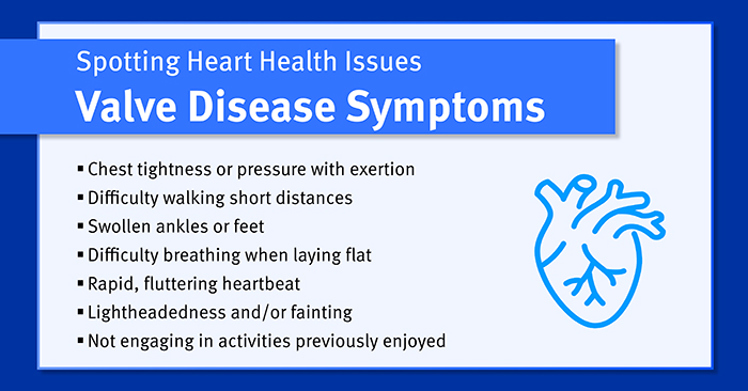
What an Interventional Cardiologist Wants You to Know About Valvular Heart Disease

Valvular heart disease occurs when one or more of the heart's four valves doesn't work properly, interrupting the body's ability to move blood and support optimal organ function. Dr. John Schindler, Interventional Cardiologist with CaroMont Heart, specializes in valve issues and wants patients to understand how to navigate concerns.
Dr. Schindler writes:
“The symptoms that arise when a heart valve becomes dysfunctional can vary for each patient, but common symptoms can include:
• Chest tightness or pressure with exertion
• Difficulty walking short distances
• Swollen ankles or feet
• Difficulty breathing when lying flat
• Lightheadedness or fainting
• Not engaging in activities that you previously enjoyed and withstood
• Rapid fluttering heartbeat
It is important to listen to your body as these symptoms can signify a serious health condition. Ignoring them or hoping symptoms resolve on their own is not recommended and can be dangerous. If an individual is experiencing a medical emergency, they should call 911 immediately or seek care at the nearest emergency medical location.
If you are not experiencing a medical emergency but feel something isn’t right, it is important to discuss these symptoms with a primary care provider as soon as possible. A referral can then be made to a cardiologist, as necessary, and further testing may be needed to characterize the severity of the heart condition and what can be done to treat it.
Some milder valve abnormalities only require heart medications or a special pacemaker to improve the efficiency of the valve dysfunction. Sometimes, surgery is necessary but thanks to advances in technology, there may be less invasive options for some patients. Less invasive treatments eliminate the need for large surgical incisions and consist of placing catheters in different blood vessels to improve blood flow. CaroMont Health physicians work together as a team and discuss individual situations to determine the optimal treatment strategy for every individual patient.”
Learn more about cardiac care options at CaroMont Health.
Talk to your doctor if you're experiencing any of the following:

